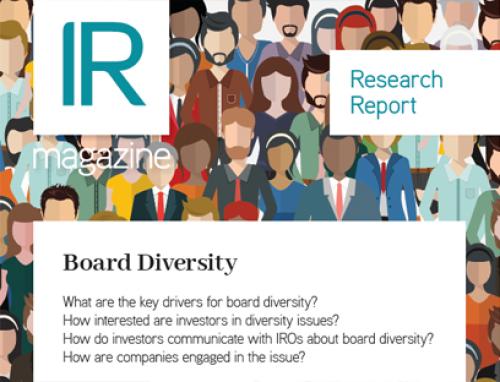IR magazine grills Andrea Barbaro on his plans for transforming Eurotech into a multi-billion-dollar company.
A big challenge lies ahead for Andrea Barbaro. His appointment as IR officer at Eurotech just under a year ago marked a brand-new approach to IR at this burgeoning Italian tech company.
Following the firm’s listing in 2005, former IRO Massimo Mauri led a fiercely acquisitive campaign across Europe, Asia and the US, which Barbaro describes as a tricky, yet necessary, process. ‘There’s a gap between the majority of firms in our market that are worth up to €40 mn ($56 mn), and the few firms that are worth €100 mn and above. It was important to pass this glass ceiling quickly to reach a critical mass and be in the top 10,’ he explains.
Now Barbaro’s task is to lead the company through a phase of organic growth, despite the tough market conditions. ‘I would be lying if I said we’re not having a few problems,’ he admits. ‘But falling stock price is a reflection of the general situation and not symptomatic of any company-specific issue.’
Sticking to the plan
The crisis has made little difference to Eurotech’s organic growth strategy, insists the IRO, who is also in charge of strategic planning. ‘We’re going to focus on transport, medical and defense, which have government backing, rather than on industrial or commercial, which we’ve previously been strong in,’ says Barbaro, who stopped by IR magazine’s London offices en route to a site visit at a Cambridge subsidiary.
Barbaro is surprisingly unfazed by the financial meltdown. ‘The embedded electronic market will become more consolidated,’ he says. ‘The bigger firms will get bigger and the smaller ones will get smaller or disappear. We’re lucky to be in the top 10 right now, so we should grow despite the crisis.’
He admits investors are more cautious, but says there are still plenty of good opportunities. ‘They’re just harder to identify,’ he maintains. ‘You need to spend more time with investors to convince them to invest.’
The task of persuading investors to commit to Eurotech is made easier by the firm’s focus on the business-to-business (rather than business-to-consumer) market, as well as the fact that it makes critical electronic components for MRI machines and wireless internet systems for buses and trains, the latter being considered a financially sound area. ‘A specific part of the Obama plan is dedicated to improving access to wireless broadband,’ Barbaro points out.
Expanding horizons
Barbaro is keen to reach investors on the other side of the Atlantic, as 45 percent of the company’s revenues are generated in the US. ‘Investors are putting money into our US-based peers, so they could also put some in Eurotech – but they need to know our company before they can do that,’ he adds.
Quite how he intends to get a slice of US capital is still uncertain. ‘We have to work out which are the most interesting investors,’ he notes. ‘Those already investing in our competitors will be easier to approach.’
Eurotech stands apart from its domestic counterparts with its 78 percent free float, unusually high for an Italian company. ‘It was a matter of having an IPO that was a bit different from the Italian standard and closer to the UK or US model,’ explains Barbaro.
Many Italian IPOs are born from the desire to cash in money from previously family-owned businesses. Eurotech, on the other hand, invested the capital back into the company, with dramatic results: the firm’s stock value rose 200 percent in the first three months of its listing, which was deemed the most successful IPO of 2005.
Barbaro places considerable importance on PR and views the press as a useful way to secure the attention of foreign investors. But how can he guarantee the attention he receives will be the sort he is looking for? ‘It’s a risk you have to take,’ he concedes. ‘Sometimes no news is bad news, especially when we’re surrounded by trouble.’
Playing with the big boys
Last year Italian industrial giant Finmeccanica took an 11 percent stake in Eurotech to become its largest shareholder. Barbaro claims it was easy to inform shareholders of the news, though he doesn’t dismiss the fact that some feared a complete takeover, or that some might still do.
He is, however, confident of Finmeccanica’s interest in Eurotech being a strategic investment. ‘Most of our investors view the deal positively and feel we are stronger now,’ he adds. ‘We have tight connections with a leader that can help us from both technological and marketing standpoints.’
Barbaro draws inspiration from David Thomson’s Blueprint to a billion, which lists the seven essentials to becoming a multi-billion-dollar company. ‘One of the key points is partnering with one or more big brothers,’ smiles Barbaro, who highlights Eurotech’s partnerships with IBM and Intel. ‘Joining the big names helps us to be known internationally, too.’
Barbaro also feels Eurotech’s company message is more important than its numbers. ‘Sometimes I describe Eurotech as a teenager,’ he expands. ‘Adolescents can be ugly, because they are not fully grown or properly balanced. They have big feet, but they are still short. They have very young faces, but their voices have already changed. It’s difficult to evaluate them using the same rules you would apply to a 25-year-old man.
‘The same is true for Eurotech. We are growing, but we haven’t reached our target yet. We want to be bigger, so it’s hard to evaluate the company right now. It’s better to look at where we want to go.’










